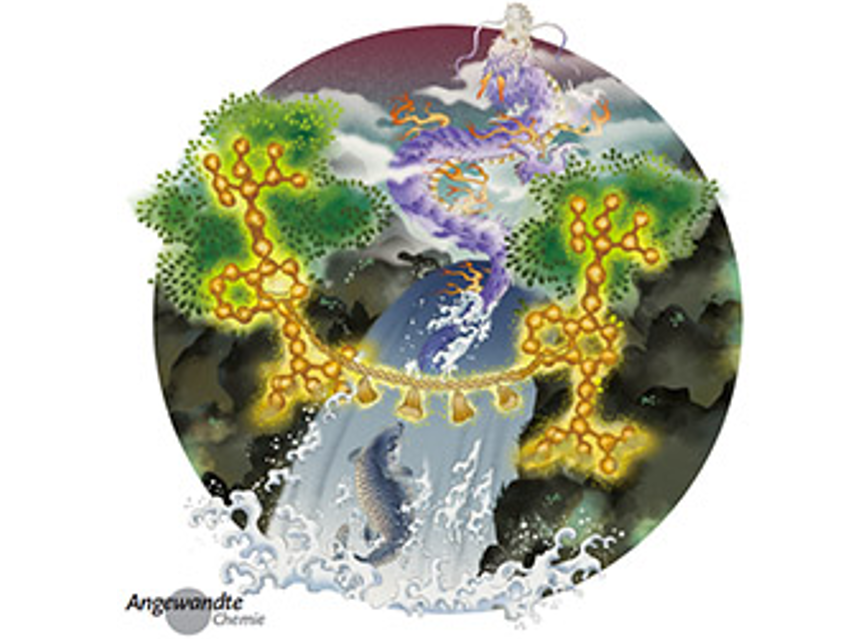In the first issue of 2021, E. Kontturi et al. review the chemical modification of reducing end groups in cellulose nanocrystals. U. Bornscheuer et al. summarize biocatalytic, enzymatic synthesis for industrial applications, and L. Echegoyen et al. discuss fullerenes as key components for low-dimensional (photo)electrocatalytic nanohybrid materials. The Minireviews deal with fluorogenic probes/inhibitors of β-lactamase and their application in drug-resistant bacteria (W. Huang et al.), frustrated radical pairs as seen by EPR (R. L. Melen et al.).
In the original research section, N. Yanai et al. describe a key TIPS naphthalene for visible-to-UV photon upconversion (see picture). E. Rivard et al. used frustrated Lewis pair chelation as a vehicle for low-temperature semiconductor and polymer deposition. M. G. Kanatzidis et al. found strong valence band convergence to enhance thermoelectric performance in PbSe with two controls. P. Rudolf et al. present a fast and facile synthesis of 2D germanane, and X.-Y. Liu et al. succeeded in the copper-catalyzed enantioconvergent cross-coupling of racemic alkyl bromides with azole C(sp2)–H bonds.
- Angewandte Chemie 1/2021: Happy New Year,
Angew. Chem. Int. Ed. 2020, 1.




